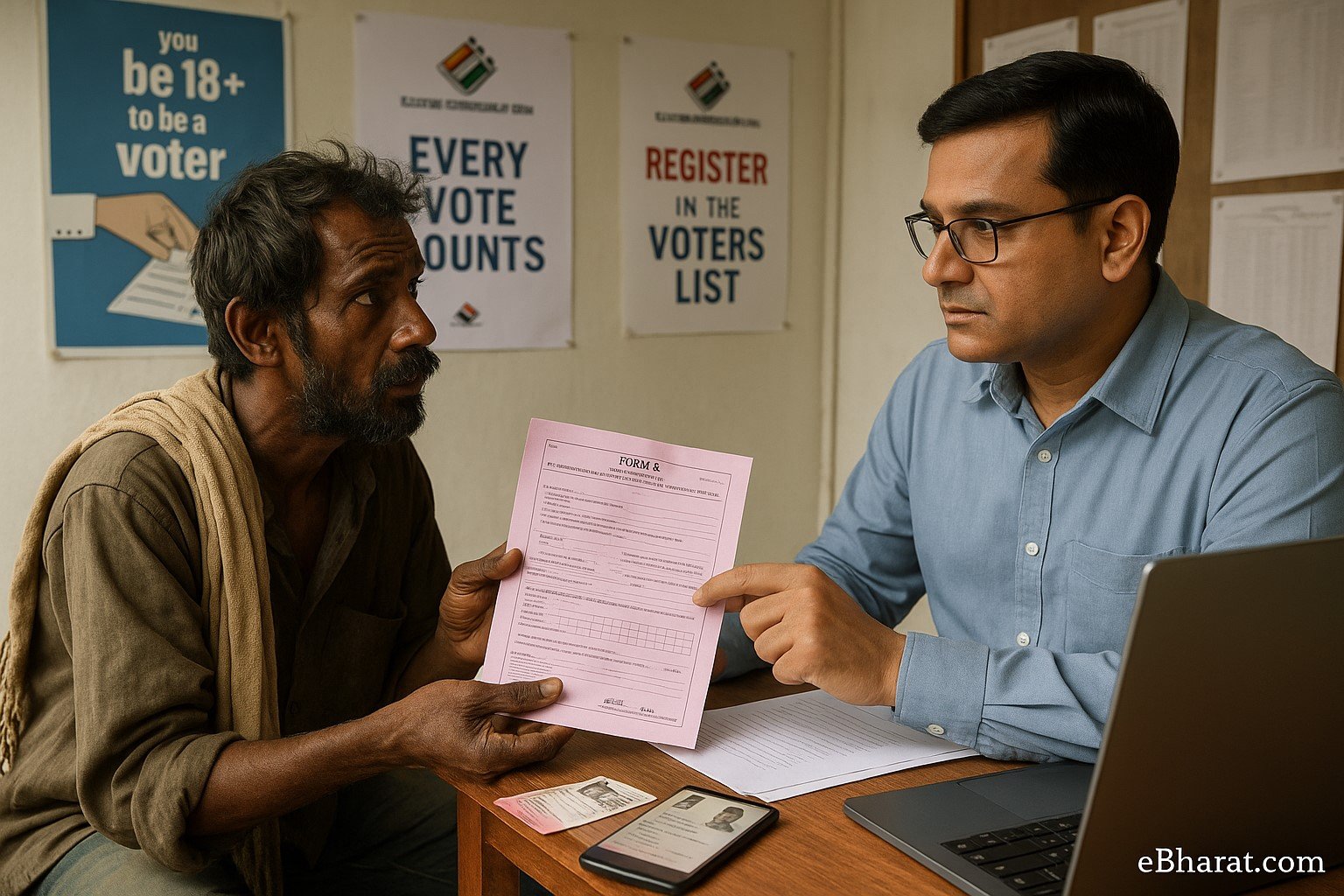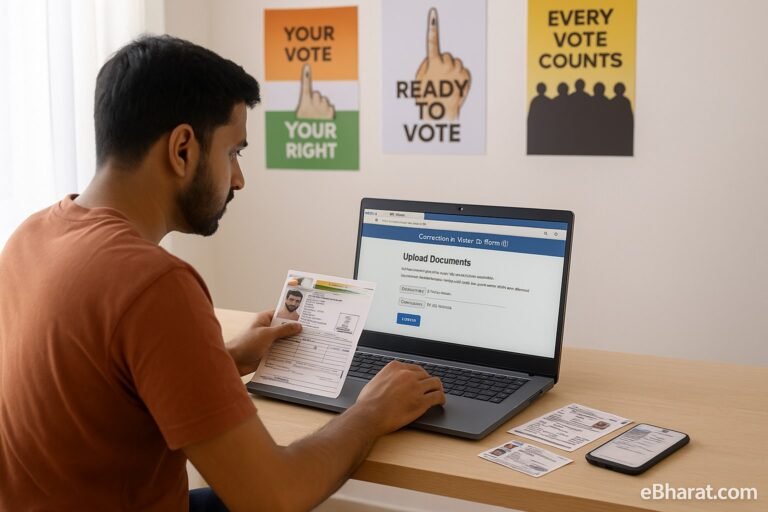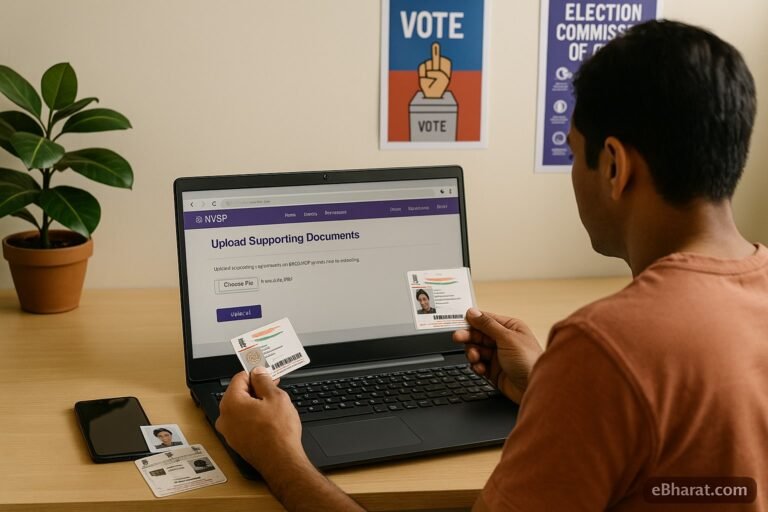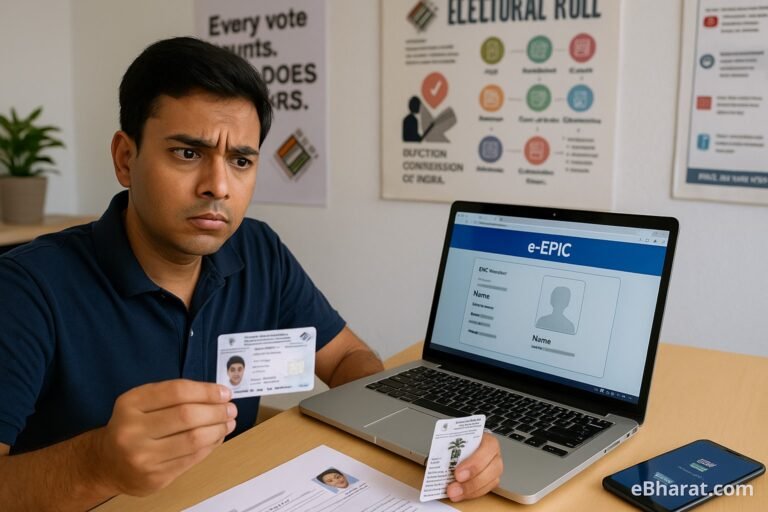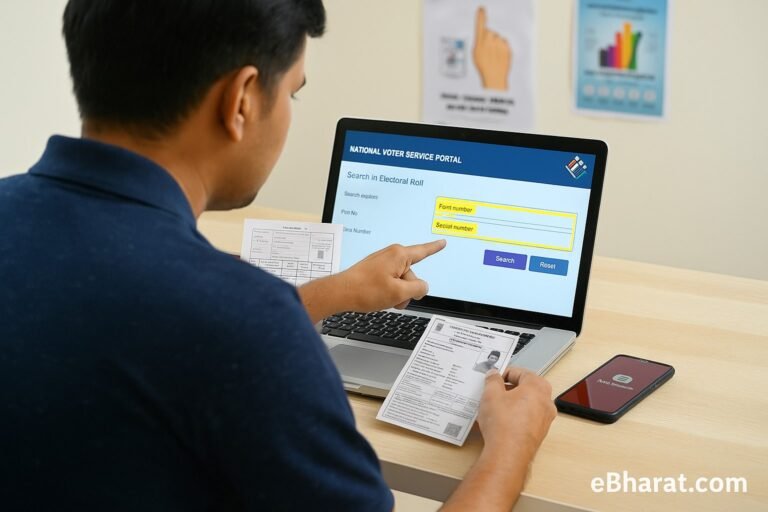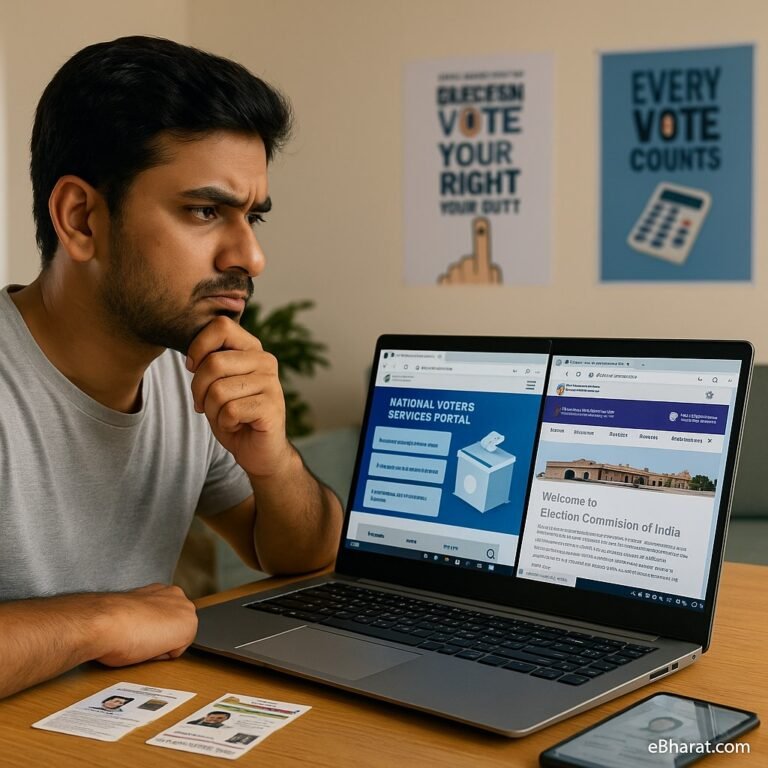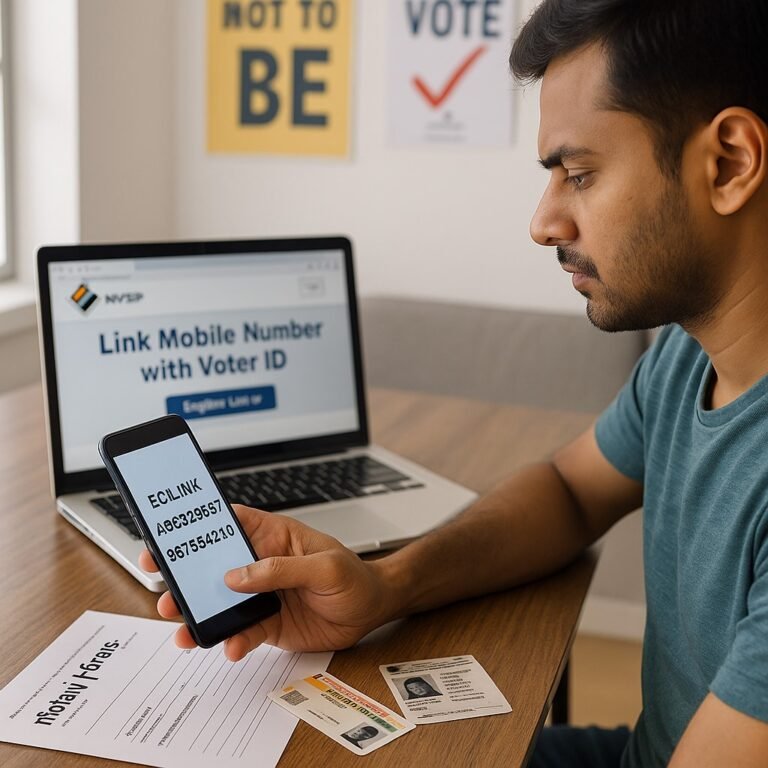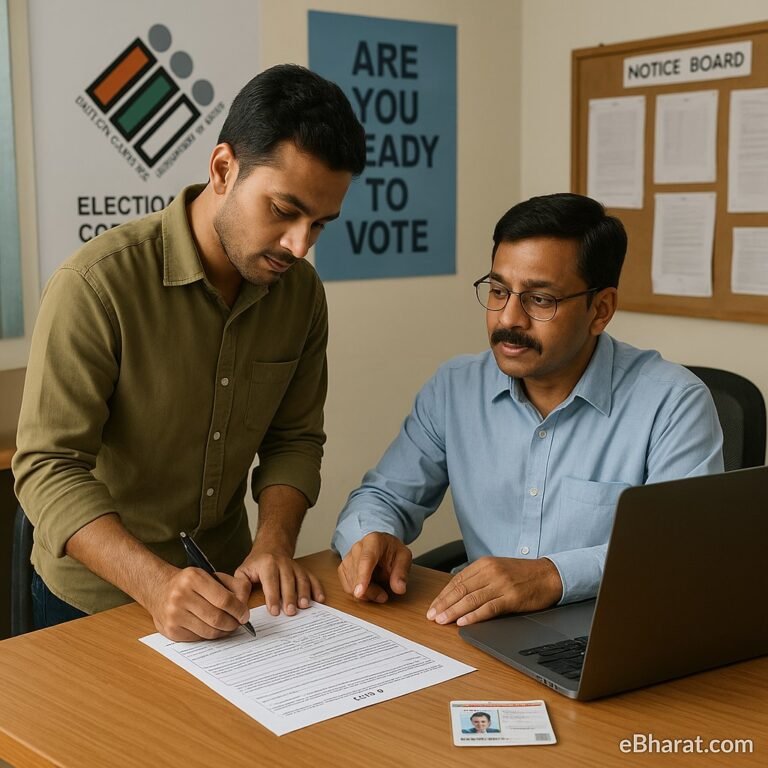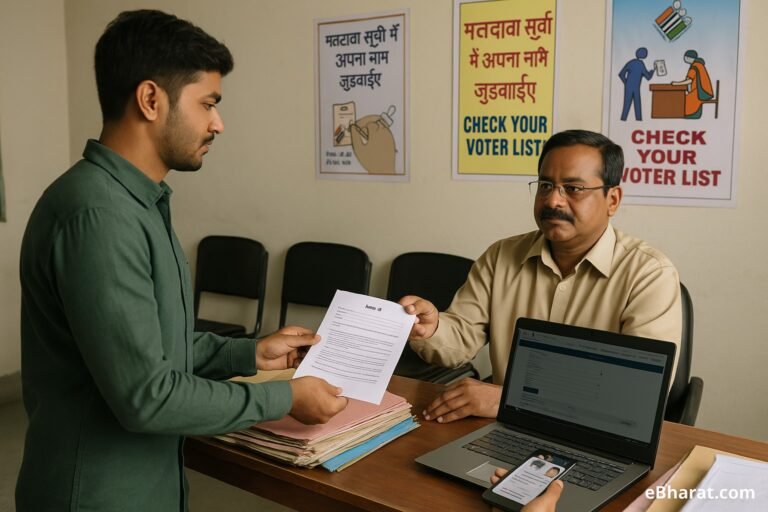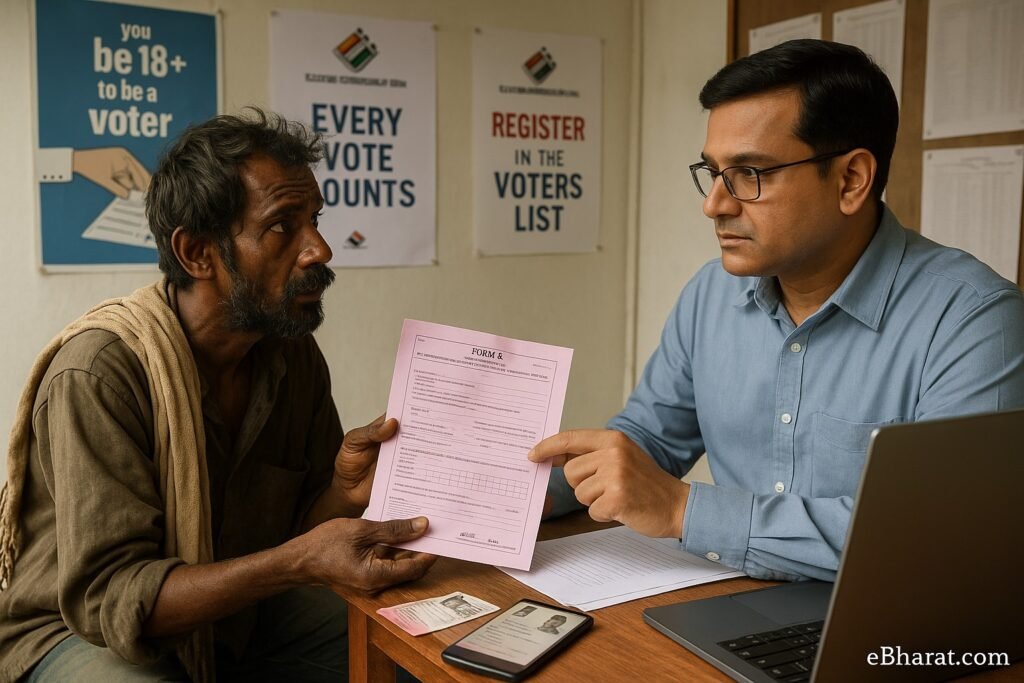
Having a Voter ID card is the first step to exercising your democratic right in India. But what if you don’t have a permanent address? This situation is common for citizens who are homeless, living in temporary shelters, or not staying in a rented/owned house.
The Election Commission of India (ECI) has made special provisions to ensure that even people without a fixed residence are not excluded from the electoral process. Every Indian above 18 years of age has the right to vote, regardless of their housing or income status.
How the Process Works
1. Special Provision for Homeless Citizens
The Booth Level Officer (BLO) in your area is responsible for helping citizens without a permanent address register as voters. BLOs may visit common living areas like:
- Pavements (Footpaths)
- Railway stations
- Night shelters
- Temporary colonies or camps
They will identify and verify individuals who want to apply for a voter ID.
2. Declaration Instead of Address Proof
Since homeless citizens may not have rent agreements or utility bills, they can submit a self-declaration confirming their place of stay. This declaration can be verified by:
- Local officials
- Social workers
- Witnesses from the community
This makes it possible to register even without traditional address documents.
3. Fill Form 6 for New Registration
Applicants without a permanent address need to fill Form 6 (Application for inclusion of name in the electoral roll).
Ways to access Form 6:
- Online: Through the NVSP portal or the Voter Helpline App.
- Offline: Available with the BLO or at the nearest election office.
4. Verification by BLO
Once the form is submitted, the BLO may visit the location where the person usually stays, such as near a shelter home or under a local landmark. If satisfied, they will forward the application for approval.
5. Issuance of Voter ID
After verification and approval:
- The applicant will be added to the electoral roll.
- A Voter ID card will be issued to them.
This ensures that even homeless or shelter-less citizens are not deprived of their fundamental democratic right to vote.
India’s democracy is based on universal adult suffrage — every Indian citizen above 18 years has the right to vote, regardless of:
- Income
- Housing situation
- Social status
These provisions ensure that vulnerable groups like the homeless, migrant workers, and those without stable housing are included in the electoral process.
Fix name or parent’s name typos online via NVSP Form 8. Upload an ID with the correct spelling and track status instantly.
👉 Complete GuideUse Insurance+ to explore and compare life, health, and term policies in one place — quick, simple, and free.
👉 Try Insurance+ NowStart a flexible, rewarding career as an insurance advisor. Get digital tools, training, and strong earning potential.
👉 Apply Now to Become an Agent
